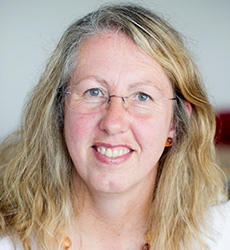Professor Geraldine Hartshorne
Which NHS and Academic Institutions do you work for?
I am employed by the University of Warwick and hold an honorary contract at University Hospitals Coventry and Warwickshire NHS Trust. I also do a range of academic and professional advisory work on an ad hoc basis.
What do you like about being a Clinical Academic?
I enjoy and really value the autonomy of my academic role and the freedom to explore what I perceive as important. The clinical work involves interaction with patients, and interesting case situations where I can advise or personally design and tailor treatment options, teaching and supervision of research projects and plenty of potential for application of my skills. I also hold licences for the research and am responsible for their ethical conduct in the clinical and research settings. Altogether, this means that I am constantly applying knowledge in the clinical situation and learning what to look at next in my research. Every day is different and the variety is refreshing.
Can you briefly describe how you became and developed as a Clinical Academic?
I did my PhD first, under a renowned figure in the IVF field, so I was based in the clinical setting from the start. I remained there as a post-doc and then moved to an independent academic position at Oxford, again, within the clinical IVF setting, with a half research, half clinical role. Finally, 25 years ago, I moved to Warwick and UHCW, retaining the half and half role, as Scientific Director of the IVF service.
Give one example of where your work has changed practice?
Most of my most important work has been basic discovery science, however, recent work on nuclei in human two-cell embryos has shown how abnormal nuclear numbers remain compatible with normal embryonic development, and that a certain configuration may even be advantageous. Such embryos were previously deemed abnormal and less likely to be transferred to the patient.
What advice would you give to a Healthcare Scientist who is an aspiring Clinical Academic?
You have to really want to do it and it is up to you to make it work as each situation is unique. It is a challenging role, you will never have enough time to do everything that you want to do. Both organisations will expect your full-time commitment and you will have to manage your time very efficiently. You frequently will not fit the mould and you will be misunderstood in various ways. You have to be extremely independent, self-motivated and determined. The academic world is extremely competitive and you do have to be good at what you do. You will have to deal with rejection regularly. Make sure you have helpful people around you to make your learning curve as rapid as possible. If you can stick with it, you will find it the most exciting and rewarding place to be.
